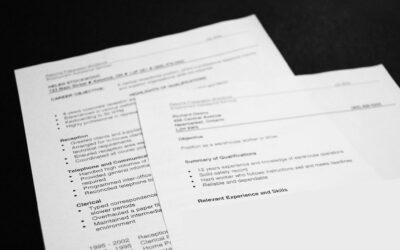Are you allowing job search mistakes to keep you from getting interviews?
- Be proactive – The passive approach of online search, sitting at a computer and clicking the apply button doesn’t pay off enough to warrant spending more than an hour a day. Job search is a contact sport, you have to find ways to connect with those who have influence with, and will introduce you to the decision makers.
- Begin with the end in mind – If someone asks what you are looking for, your answer must be short, specific, believable, and memorable to be effective. Envision what you want in the future so that you know concretely what you want to make a reality.
- Put first things first – Prioritize your tasks. Do those job search activities which bring the greatest return and move you most rapidly toward success.
- Think win/win – As you network, you are building mutually beneficial relationships. Networking that is not win/win is ineffective. Shaping your job search around the principle of win/win assures a great outcome.
- Seek first to understand, then to be understood – Successful networking conversations and job interviews are all about fully understanding the needs, desires and problems of the other person. This creates an atmosphere of caring and positive problem solving.
- Synergize – In true synergy there is additional energy produced through cooperation. For job seekers this is networking at its highest form, finding ways to connect and benefit everyone around you, knowing that those benefits come back to you, often in unexpected or unpredictable ways.
- Sharpen the saw – Take this opportunity to become a lifelong learner. Continue to learn, grow in knowledge and skill even when you don’t have a job. This is critically important for job seekers, particularly if the search drags on more than a few months, which seems to be more common now. This is a chance for you to volunteer, take classes (online or on campus), or do temporary work. These all demonstrate that your skills are current and you haven’t let them go “stale”.
 Rick Christensen: Director, Career Transition Practice
Rick Christensen: Director, Career Transition Practice
Rick’s passion is coaching individuals through career transitions, developing career management strategies and in identifying and sharpening competencies to open doors to new opportunities. His efforts have assisted thousands of individuals achieve their full potential.
Contact Rick at: Rick@CareerDevelopmentPartners.com



